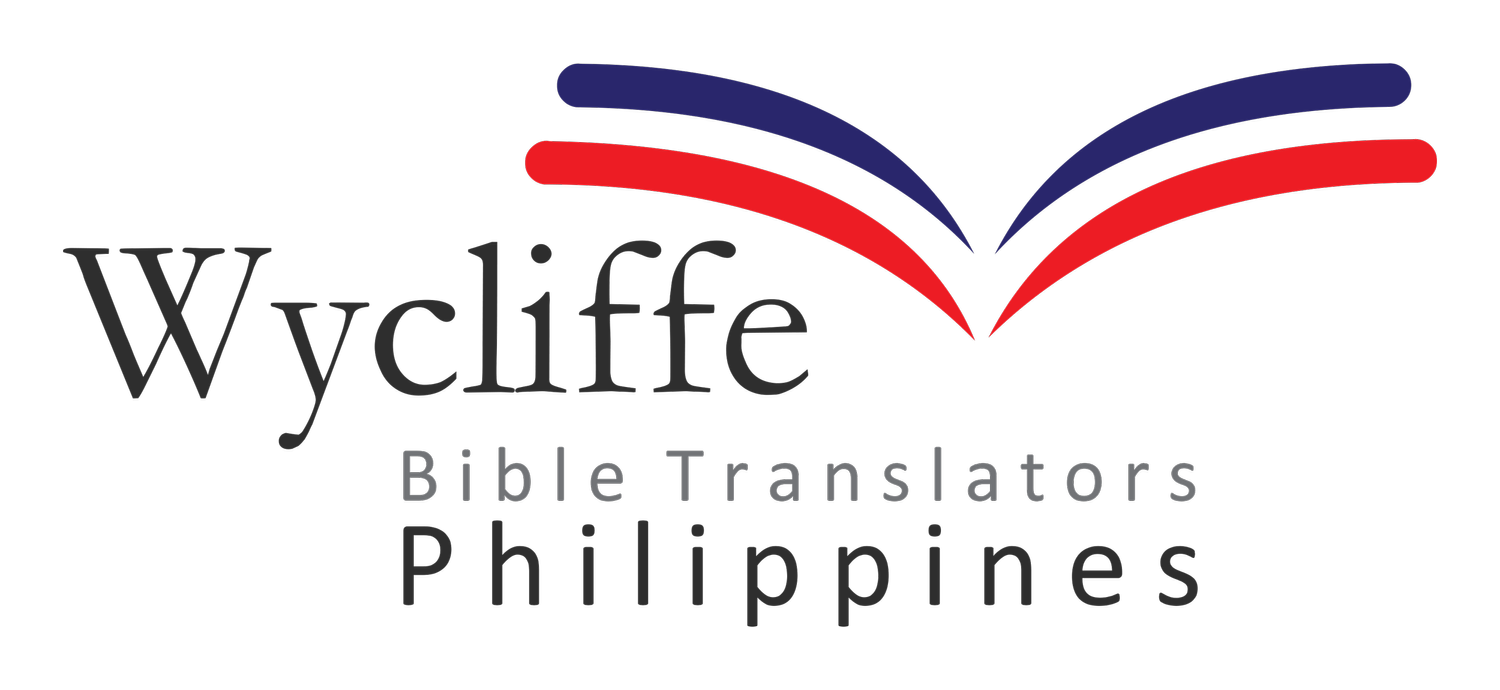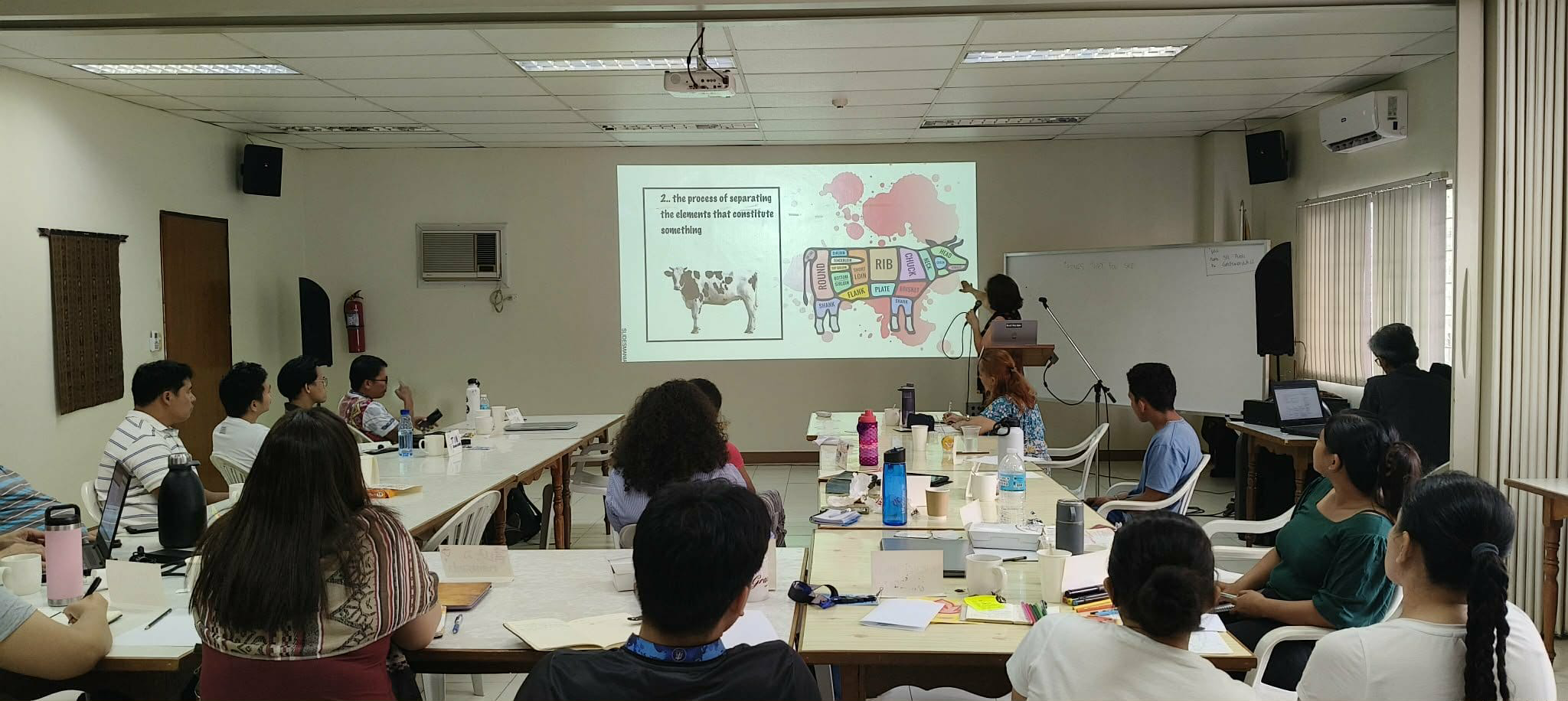EthnoArts : Communicating God’s Word through Local Arts and Culture
Seventeen participants from six local communities and organizations—including members of Wycliffe Philippines—joined four international representatives from Indonesia, Honduras, and Ecuador for the Foundational Principles of Culture and Arts Ministry Training held on 20–23 October 2025.
The facilitation team was composed of Lean Ornos, Alvin Balao, Lucy Rogers, Asia Pacific Coordinator from Australia, together with Junn and Anne Esteban, who serve with SIL as EthnoArts consultants.
Foundational Principles of Culture and Arts Ministry Training
During the training, the participants learned the importance of EthnoArts. They discovered how communities can hear, feel, and live Scripture through the artistic expressions and cultural forms that resonate with them. The training emphasized on scriptural foundations that show how God uses art – songs, drama, music, poetry and other creative expressions – to impart wisdom and reveal His glory. Discussions on the insider-outsider perspective and practical research methods helped participants view ministry through multiple lenses.
Junn Esteban (SIL Ethnoarts Consultant) discussed the power of music and arts in expressing ideas and faith.
The highlight of the event was a visit to the Matigsalug community of Malikongkong. After a challenging uphill motorcycle ride, participants were greeted with warmth and hospitality. In the mountains, they witnessed a community living with joy, simplicity, and trust in God’s daily provision. They joined local believers in fellowship through indigenous food, music, dance, storytelling, and prayer chants called “Ulahing”.
Participants traveled by motorcycle to Malikongkong village during the training.
Throughout the four-day event, Wycliffe Philippines participants shared personal insights on how God has shaped their understanding of culture, worship, and ministry.
Discovering Identity and Calling
For Cherryl Tancio, translation advisor for Cortesanon Oral Bible translation (OBT) project, the training was an affirming experience.
“God revealed to me that I am special and that He has given me a special task for His glory,” she said.
Cherryl appreciated how the workshop emphasized that sharing God’s Word is not about replacing a community’s cultural expressions, but walking with people as they discover how their own arts can communicate biblical truth.
Culture as a Space for Worship
The training gave Reymart Lagbang, mother tongue translator Mandaya Caraga OBT project, a new understanding of the relationship between culture and worship.
“Culture is not a hindrance for God’s Word to work among tribal people,” he shared. “Instead of imposing our culture, we should help them preserve theirs—and use it to worship the one true God.”
His time in Sitio Malikongkong left a deep impression. Watching the Matigsalug people use their artistic gifts for the Lord stirred in him a renewed excitement to serve other communities, particularly the Caraguenong Mandaya community in Sangab and Panlaisan.
Seeing Culture Through God’s Eyes
Pastor Mar Atab, translator advisor for Talacogon OBT project, shared that the training broadened his understanding of God’s heart for every culture and language.
“I realized that worship is not limited to one style. It can be beautifully expressed in the heart language and artistic expressions of every people group,” he said.
Through devotional worship, prayer, and a creative self-introduction exercise—drawing symbols of who we are, where we come from, and what defines us—he was able to reflect deeply on his identity and calling.
Though he initially struggled to move beyond “Western” worship styles, the training empowered him to embrace culturally rooted expressions of faith. “God delights in every sincere expression of worship,” he said.
God’s love for People
The workshop helped Dennis Ang, translation advisor for the Umajamnon OBT project, see the depth of God's love for people from every background.
“Akong nakita ang dakong gugma sa Dios sa tanang katawhan bisan og nagkalain lain ang kultura. Nakita nako nga pwedi siyang simbahon sa bisan unsang art forms sumala sa nagkadaiyang kultura o tradisyon basta kay siya ang Dios maoy sentro.” (I’ve come to see the greatness of God’s love for people from every culture. I’ve realized that we can worship God through any art form, reflecting each unique culture or tradition as long as God is at the heart of it all. he shared.
Reassurance of God’s calling
One of the most meaningful moments for Lani Tamba, translation advisor for the Sama Samalnon OBT project, came during a creative meditation on Philippians 1:2b–8.
“While others drew and painted, I initially felt inadequate, wishing I had their skills. Yet, I chose to write my prayers instead. As I did, I felt God’s comforting presence, reminding me that my greatest calling is to serve Him and His people.” she said.
Anne Esteban (SIL Ethnoarts Consultant) shared a message from the Word of God during the training.
EthnoArts and Bible Translation
The training program provided a meaningful space for learning, reflection, and discovering how God speaks through the unique artistic expressions of each community. Through EthnoArts, Wycliffe Philippines continues to engage people with Scripture in ways that celebrate the creativity God has placed in each culture.
To support our mission, you may click here to visit our donate page.




